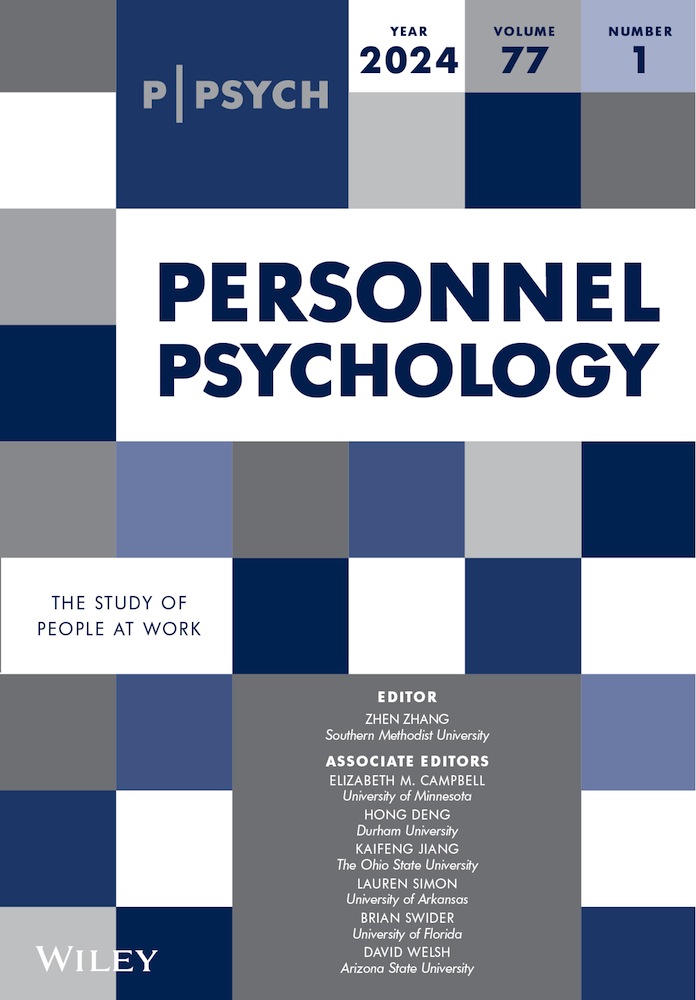企业家的怪癖是一把双刃剑:对产品创造力和投资者吸引力的影响
IF 6.4
2区 心理学
Q1 MANAGEMENT
引用次数: 0
摘要
许多标志性的企业家都因其无可辩驳的怪异而闻名。利用从电视节目《创智赢家》(Shark Tank)中收集的宣传资料,我们试图在获得投资者资金的背景下,解开企业家古怪行为与投资者兴趣(即竞标者数量)之间的联系。将Wood及其同事(2007)的非规范性理论与Amabile(1983、1996)的创造力成分理论相结合,我们提出,作为非规范性的一种形式,怪诞性通过两种不同的途径对企业家产生积极和消极的结果。具体来说,怪异优势通过企业家的创造力发挥作用,而怪异劣势通过企业家较低的能力发挥作用。我们对非规范性的实证分析表明,企业家的怪异行为确实是一把双刃剑。此外,我们提出企业家热情(友好和善良)通过加强对企业家创造力的积极影响和抑制对企业家能力的消极影响来调节这两种怪异效应。讨论了企业家怪异行为的利弊。本文章由计算机程序翻译,如有差异,请以英文原文为准。
Entrepreneur weirdness as a double‐edged sword: Effects on product creativity and investor attraction
Many iconic entrepreneurs have been celebrated for being unapologetically weird. Using pitches collected from the TV show Shark Tank, we seek to unpack the link between entrepreneur weirdness and investor interest (i.e., number of bidders) in the context of securing investor funding. Integrating Wood and colleagues’ (2007) theory of non‐normativity with Amabile's (1983, 1996) componential theory of creativity, we propose that weirdness, as a form of non‐normativity, yields both positive and negative outcomes for entrepreneurs through two distinct pathways. Specifically, the weirdness advantage operates through entrepreneur creativity, whereas the weirdness liability operates through lower entrepreneur competence. Our empirical analyses of non‐normativity suggest that entrepreneur weirdness indeed is a double‐edged sword. Further, we propose that entrepreneur warmth (being friendly and good natured) moderates both weirdness effects, by strengthening the positive effect on entrepreneur creativity and dampening the negative effect on entrepreneur competence. Implications of the advantages and disadvantages of entrepreneur weirdness are discussed.
求助全文
通过发布文献求助,成功后即可免费获取论文全文。
去求助
来源期刊

Personnel Psychology
Multiple-
CiteScore
10.20
自引率
5.50%
发文量
57
期刊介绍:
Personnel Psychology publishes applied psychological research on personnel problems facing public and private sector organizations. Articles deal with all human resource topics, including job analysis and competency development, selection and recruitment, training and development, performance and career management, diversity, rewards and recognition, work attitudes and motivation, and leadership.
 求助内容:
求助内容: 应助结果提醒方式:
应助结果提醒方式:


